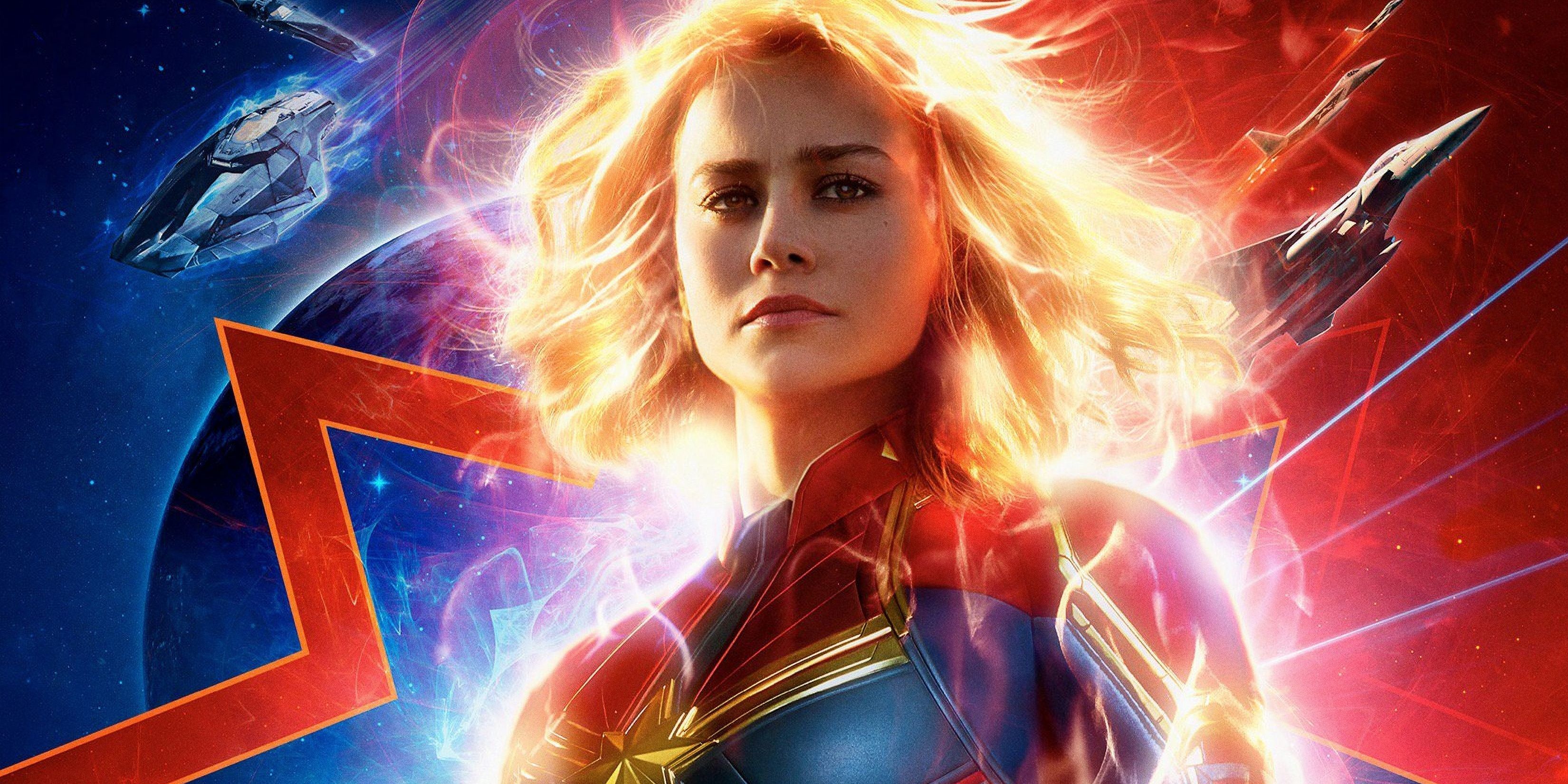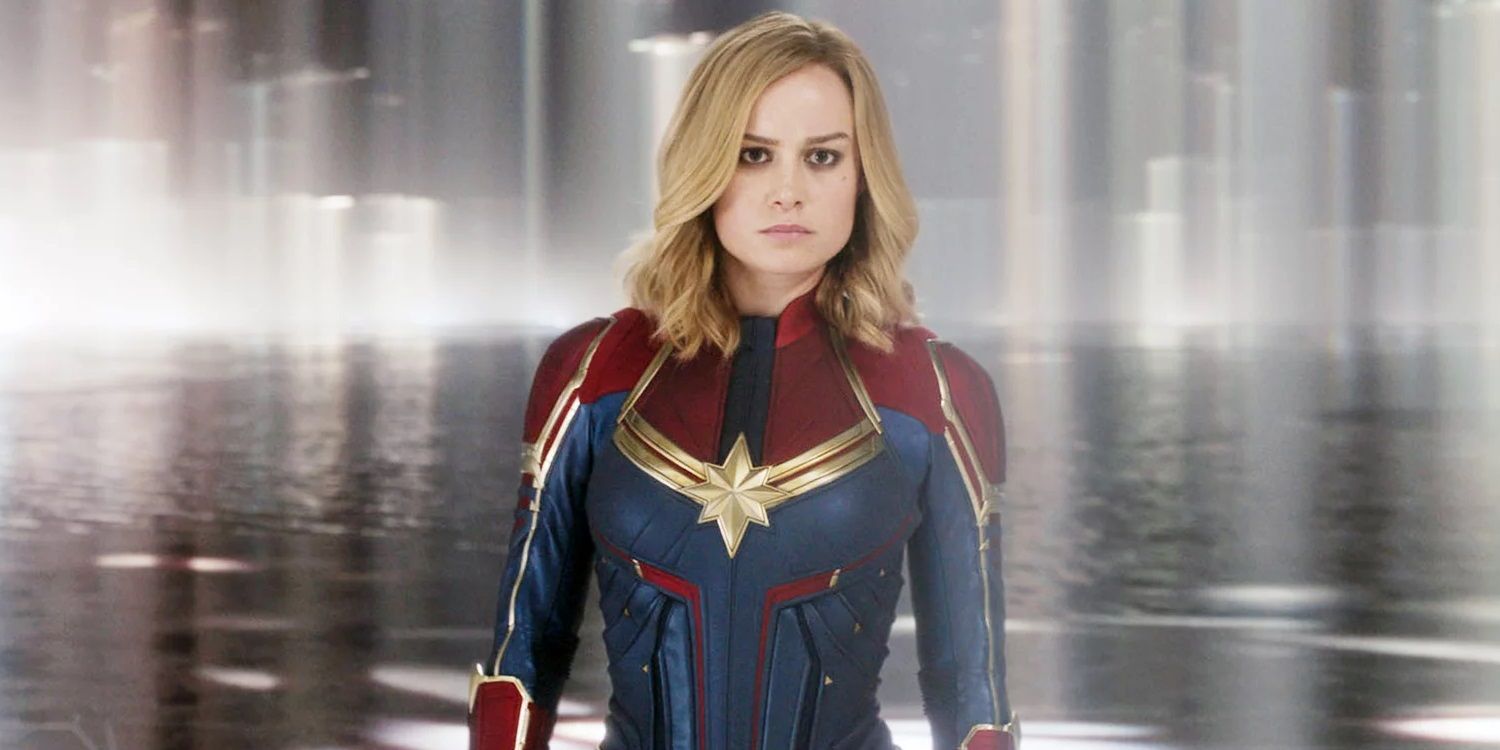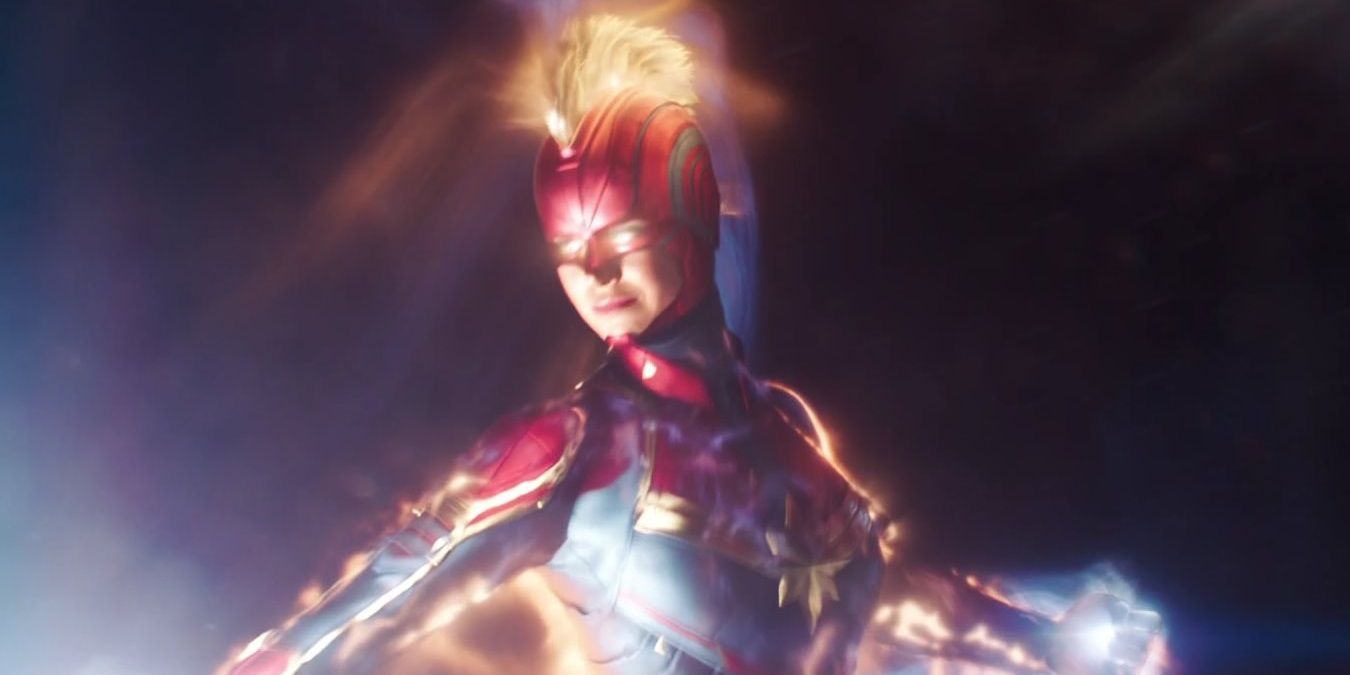2019’s Captain Marvel was a refreshingly subversive MCU origin movie that gave Brie Larson’s Carol Danvers a kick-ass big-screen debut, but her character arc was let down by its lack of dramatic conflict. Once Carol has her powers, she’s unstoppable, so the story ceases to be engaging. In the final battle, to avoid an all-out alien invasion of Earth, she just flies into space and punches Ronan’s ships until the fleet backs down.
Given Carol’s three-ish decades of superhero experience between the events of the first Captain Marvel movie and Avengers: Endgame, Nia DaCosta’s upcoming post-Endgame sequel The Marvels has the opportunity to improve on this aspect of her characterization.
At the end of Captain Marvel, Carol departs from Earth in search of a new home for the Skrull refugees. The fact that she only reappears when Thanos commits universe-wide genocide suggests that she spent the entire interim protecting the universe from evil, like a one-woman Guardians of the Galaxy. In Endgame, Carol hints that there are hundreds of planets out in the MCU’s densely populated cosmos that deal with tragedies like the Battle of New York every day and don’t have an Avengers-style superhero team to save them.
This was seen as an excuse for Brie Larson’s limited screen time in the Avengers finale, but it also provides an interesting setup for The Marvels. Carol hasn’t visibly aged in the years since her ‘90s-set origin movie, but it has been about 30 years since then and that’s a long time to spend fighting alien armies and liberating enslaved planets. That gives her years of experience to build on. She didn’t seem too traumatized in her scenes in Endgame, but she only appeared briefly in the context of interfacing with the Avengers – it might be a different story behind closed doors with a close friend like Nick Fury.
For all we know, destroying Thanos’ ships and saving Earth’s mightiest heroes in Endgame’s final battle was a win that Carol needed. It did seem pretty effortless, but punching spaceships out of the sky is one of her fortes. Carol’s role in Endgame was basically a cameo; it shouldn’t dictate where her arc goes in the sequel to her standalone debut. The Marvels can expand on Endgame’s setups – which, based on the Disney Plus shows, seems to be Kevin Feige’s M.O. with Phase Four – and bring more depth to Carol than its featherlight predecessor.
Essentially, Carol is the MCU’s answer to Superman. Her vast arsenal of cosmic superpowers makes the rest of the Avengers redundant, just like the Man of Steel doesn’t really need the Justice League backing him up. The problem with a character like Superman is that their immense physical strength doesn’t open them up to much conflict. But if writers get creative, they can find a way to make invincible people relatable. An obvious one is their interpersonal relationships, like Clark Kent’s love for Lois Lane or his heartwarming mother-son dynamic with Martha. The Marvels is set to explore this angle as Carol takes both Monica Rambeau and Kamala Khan under her wing.
But the best stories about superhumans of this caliber get more existential with their study of Übermensch life. The most thought-provoking Superman stories deal with his inability to save everybody at once. The Earth’s yellow sun makes Kal-El capable of almost anything, so his inner turmoil (besides grief over the destruction of his entire home planet) stems from the fact that he can’t save everybody who needs to be saved, even if he dedicates every moment of his life to swooping around the skies, looking for people in need of rescue. Similarly, the Tesseract has made Carol powerful enough to singlehandedly police the universe, but she can only be on one planet at any given time.
When The Marvels catches up with her MCU arc, audiences should see the massive burden Carol took on in protecting the universe. In the decades she spent off-world, she surely would’ve seen all kinds of horrors: war, mass murder, terrorism, natural disasters on a cosmic scale – she might’ve even had to take down a Death Star or two. While Carol’s battle with Ronan’s fleet seemed absurdly easy to win, there are much more powerful enemies out there than Ronan. Over the years, Carol might’ve encountered a couple of villains she couldn’t defeat, or a couple of catastrophes she couldn’t prevent.
Digging into Carol’s successes and failures as a universal protector – not to mention the psychological toll of years of life-threatening superheroics – could go a long way toward building on her characterization. As it stands, Carol is likable and easy to root for, but she’s also a little thinly drawn because she’s too powerful to ever have to worry about anything. This could bring a layer of conflict to a character whose stories have very little of it, and conflict is the foundation of all storytelling.
The Marvels is set to arrive in theaters on November 11, 2022.



